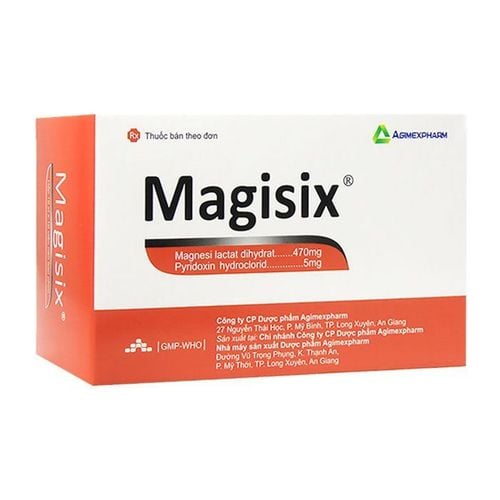This is an automatically translated article.
Magnesium is a mineral found both in the Earth's crust and in the human body. Magnesium is essential for the proper functioning of bones, heart, muscles and nerves. Accordingly, to check the magnesium concentration in the body, the doctor may appoint the patient to conduct a magnesium test, because the excess and deficiency of magnesium can affect the health of both adults and children.
1. The role of magnesium in the human body
Magnesium is an essential mineral involved in many metabolic processes, playing an important role in the physiological function of the brain, heart and skeletal muscles. Magnesium is a cofactor involved in enzyme activation that regulates diverse biochemical reactions, including energy metabolism, protein synthesis, muscle function, nerve, blood glucose, and blood pressure control. Magnesium is mainly stored in bone, muscle, and soft tissue, and less than 1% is present in the extracellular fluid. About 30% of magnesium is absorbed through food or water by the intestines, although the extent of absorption depends on the body's magnesium status.
Magnesium homeostasis is further regulated through renal excretion and reabsorption, where approximately 95% of filtered magnesium is reabsorbed. Rich sources of magnesium include green vegetables, nuts, seeds, and beans. In addition, tap water may also contain magnesium.
Watch now: 10 super healthy magnesium-rich foods
2. Indication for Magnesium Test
To date, serum magnesium analysis remains the most common method, as it is clinically accessible and rapid in practice for the identification of acute changes in homeostasis.
Magnesium testing may be ordered when your doctor examines you and suspects that your magnesium is too low or too high. Numerous studies have shown a correlation between magnesium deficiency and changes in calcium, potassium, and phosphate homeostasis. This is associated with cardiac arrhythmias such as ventricular arrhythmias that cannot be treated with conventional methods, increased susceptibility to digoxin, coronary artery spasm, and sudden death. Other co-occurring symptoms include neuromuscular and neuropsychiatric disorders. Serum magnesium levels are elevated in acute and chronic renal failure.
Signs and symptoms of magnesium overdose include:
Mental confusion Diarrhea Nausea Slow heartbeat Abdominal pain Vomiting Low blood pressure In fact, very rarely, magnesium overdose can lead to cardiac arrest or dead.
The use of foods and vegetables rarely leads to magnesium overdose, instead it can be caused by taking too many magnesium supplements. Magnesium supplementation is often indicated in patients with diabetes, alcohol use disorders, Crohn's syndrome, or problems with nutrient absorption.
Early signs and symptoms of Magnesium deficiency include:
Anorexia Tiredness Nausea Vomiting Weakness As the deficiency increases, the person may experience:
Numbness and tingling Convulsions Cramps Personality changes.

| Tuổi | Đơn vị mmol/L |
| Trẻ sơ sinh | 0.62 – 0.91 |
| 5 tháng – 6 tháng tuổi | 0.70 – 0.95 |
| 6 – 12 tuổi | 0.70 – 0.86 |
| 12 – 20 tuổi | 0.70 – 0.91 |
| Người trưởng thành | 0.66 – 1.07 |
| 60 – 90 tuổi | 0.66 – 0.99 |
| >90 tuổi | 0.70 – 0.95 |
Magnesium deficiency is common in patients: alcoholism, malnutrition, preeclampsia (if pregnant), chronic diarrhea, digestive disorders such as Crohn's disease or ulcerative colitis, diabetes.
Increased levels of magnesium in the blood than normal can be seen in the following cases: Addison's disease, kidney disease, excessive dehydration, diabetic ketoacidosis, abuse of antacids or laxatives containing magnesium.
Magnesium is a mineral that is essential for energy production and overall health. Magnesium biochemical tests are often ordered to check for magnesium deficiency in people with malabsorption, malnutrition, diarrhea, alcohol abuse or taking drugs that increase the excretion of magnesium through the kidneys and many other conditions.
Please dial HOTLINE for more information or register for an appointment HERE. Download MyVinmec app to make appointments faster and to manage your bookings easily.
References:
1. De Baaij J.H.F., Hoenderop J.G.J., Bindels R.J.M. Magnesium in Man: Implications for Health and Disease. Physiol. Rev. 2015;95:1–46. doi: 10.1152/physrev.00012.2014. [PubMed] [CrossRef] [Google Scholar].
Package insert Magnesium of Roche Diagnostics.














